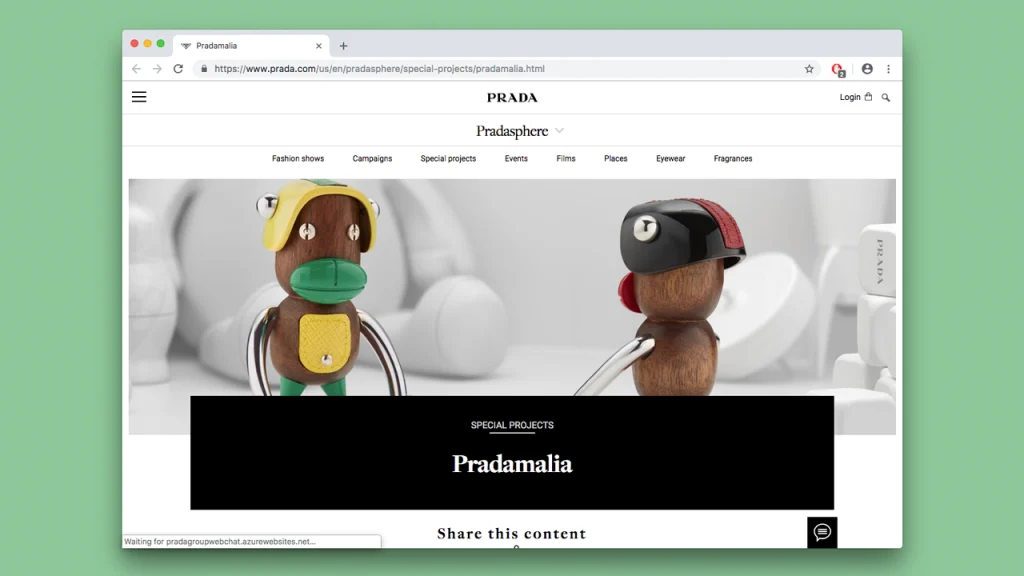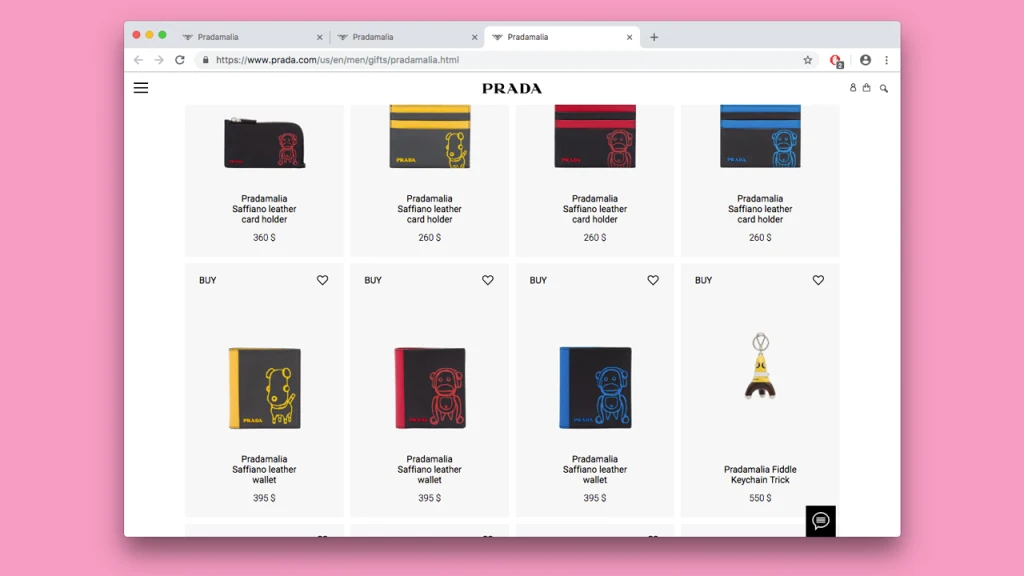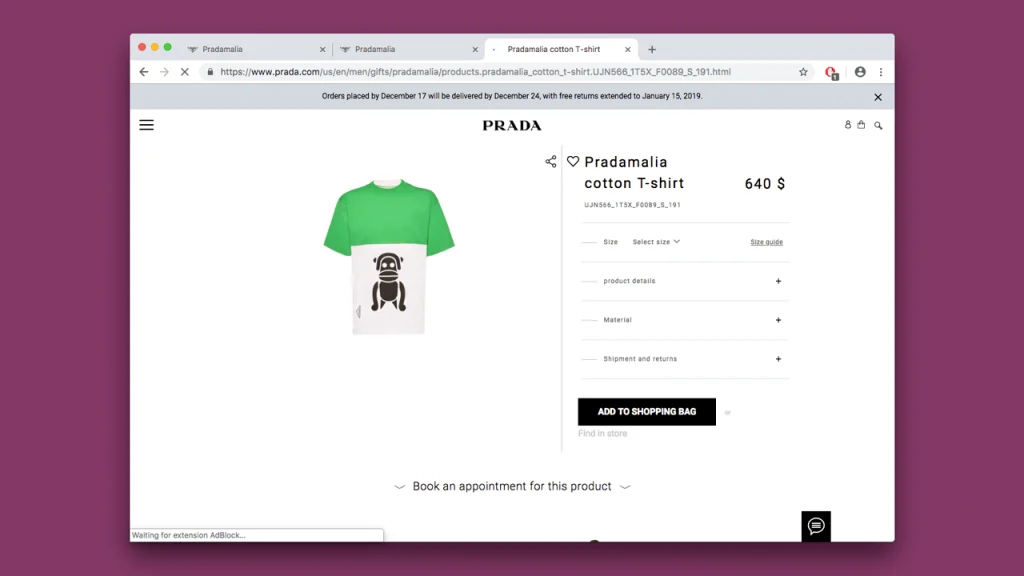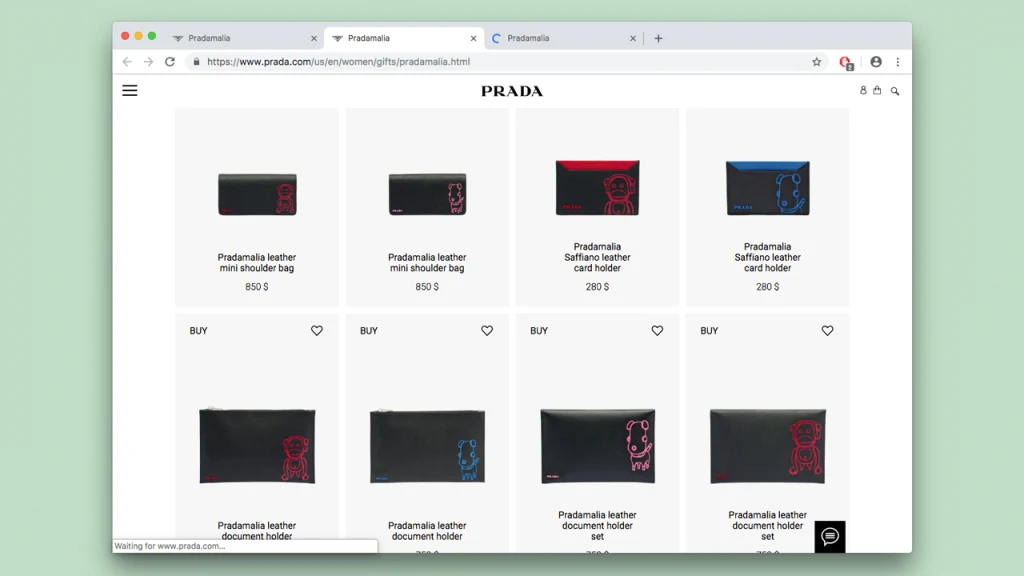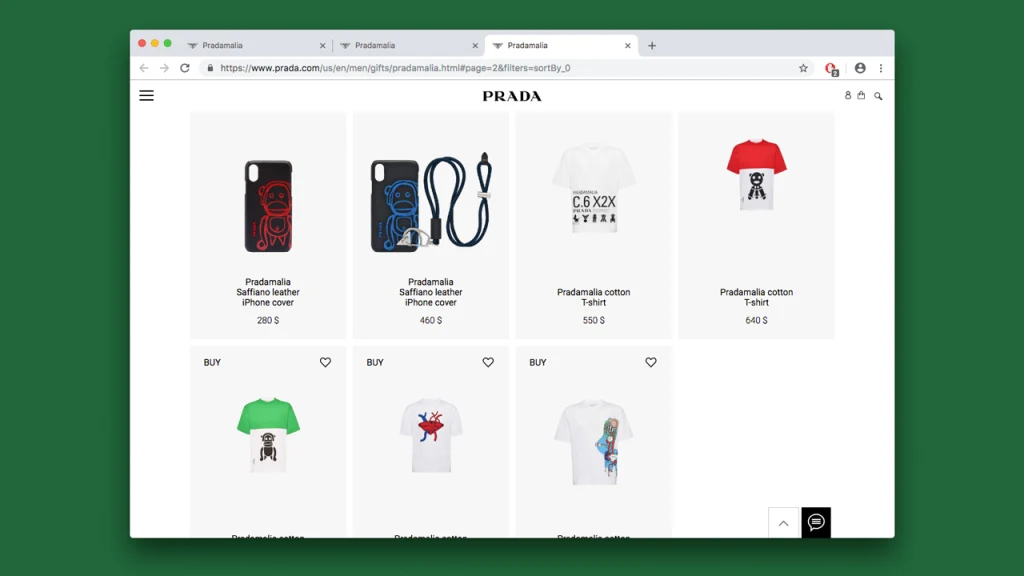I want to know who was in the room at Prada when they decided to launch little monkey keychains with black faces and red lips. Did the executives who greenlit these products think these monkeys were just adorable, in a kind of Paul Frank circa early-2000s way? Was there no one in that gorgeously decorated boardroom who thought, “Huh. You know, this is vaguely reminiscent of blackface?”
Clearly not. Prada has just launched a new line called Pradamalia, a set of figurines in the shape of “mysterious creatures” that were developed at Prada Labs, the company’s design department. But actually, the black monkey called Otto is not really that mysterious. Anybody who is familiar with history will immediately recognize this character, as it immediately draws to mind many hurtful stereotypes that have been directed at black people through racist blackface portrayals and references to monkeys.
After a Facebook user posted photos of these trinkets on display at Prada’s New York store–and pointed out how racist they were–Prada appeared to respond by taking down the display. In a statement, the brand said that it is withdrawing the monkey from display and circulation.
And yet it still denies that it had any connection to blackface: “Prada Group abhors racist imagery,” the statement says. “The Pradamalia are fantasy charms composed of elements of the Prada oeuvre. They are imaginary creatures not intended to have any reference to the real world and certainly not blackface.”
Racism is nothing new in the world of Italian luxury fashion. In 2016, Dolce & Gabanna released a pair of summer shoes, which it named “Slave Sandals.” And just last month that same brand launched a video for the China market featuring a Chinese woman struggling to eat pasta and cannolis with chopsticks. The video caused a major uproar in China and led to a boycott of the brand.
In this context, it’s surprising that Prada was not more sensitive to how this monkey trinket might be interpreted when it left Prada Labs and went out into the world. The products are so offensive, we initially wondered if they were a hoax. Sadly, it turns out they weren’t.
Recognize your brand’s excellence by applying to this year’s Brands That Matter Awards before the early-rate deadline, May 3.
